- Nigerians are set to vote for the governors of 28 of its 36 states on 11 March 2023. The election race in Lagos state, the economic hub of Africa’s wealthiest and most populated country, is being keenly watched.
- In a debate in late January, three of the Lagos governorship candidates debated issues such as education, housing, transport, healthcare and water supply. The moderator also chimed in with claims of his own.
- We check 18 of the claims made during the debate. Some are correct and some mostly correct, but more are either incorrect or unproven.
Lagos is Nigeria’s economic hub, so the race to govern the state is closely watched.
Nigerians are set to pick a president and members of the national assembly on 25 February 2023. Two weeks later, on 11 March, they’ll vote for state assemblies and the governors of 28 states, including Lagos. The country has 36 states, plus the federal capital territory of Abuja.
On 29 January three of the frontrunners in the Lagos governorship race took part in a debate organised by the Platform Nigeria, a nonprofit that organises events and conversations around national development. The debate was moderated by Dr Victor Oladokun, a veteran broadcaster.
The three were Gbadebo Rhodes-Vivour of the Labour Party, Abdul-Azeez Adediran of the Peoples Democratic Party and Funso Doherty of the African Democratic Congress.
Incumbent Babajide Sanwo-Olu of the governing All Progressives Congress (APC) opted out on the eve of the debate.
The three candidates answered questions about their plans for education, healthcare, poverty, crime, transport, the youth and more.
We fact-checked 18 claims the candidates, and the moderator, made during the debate.
The candidates: a brief profile
-
Funso Doherty, 55, has a bachelor’s degree in accounting from the University of Lagos and an MBA from Harvard University in the US. He has experience working for financial consulting firms in Nigeria and the US and has been a chief executive officer of three pension funds and investment firms.
-
Gbadebo Rhodes-Vivour, 39, has a bachelor’s degree in architecture from Nottingham University and a master’s degree from the US-based Massachusetts Institute of Technology, also in architecture. He also has a master’s in research and public policy from the University of Lagos. He runs his own architectural firm.
-
Abdul-Azeez Adediran, 45, is an experienced broadcast journalist. He owns a media company and is a philanthropist through his Jandor Foundation. He has an honorary doctorate in leadership and governance from South America University in Lagos.
Candidate: Gbadebo Rhodes-Vivour
Labour Party
Criticising transport infrastructure in Lagos, Rhodes-Vivour claimed that the state government had built only 16 kilometres of rail in 14 years.
He was referring to the first phase of the Lagos rail mass transit blue line, which president Muhammadu Buhari launched a few days before the debate.
The line is one of six in the Lagos transport master plan. When complete, it should be 27 kilometres long. But the first phase is 13 km long, not 16 km.
Rhodes-Vivour also overstated the construction time. A Chinese company started work in July 2010 and completed the first phase in December 2022. So construction took about 12 years and six months, not 14 years. – Allwell Okpi
Rhodes-Vivour also blamed constant flooding in Lagos on the state government’s mismanagement of wetlands. He claimed the state did not have a policy to protect wetlands.
Wetlands are ecosystems where water is the main factor controlling the environment. They include lakes, rivers, swamps and coral groves. Nigeria is a signatory to a UN treaty on the conservation and use of wetlands.
There is evidence that the state government has drafted a wetlands policy. But this has not been made law. In March 2022 Tunji Bello, the state’s environment commissioner, said the policy was still being reviewed. It is therefore not in force. – Allwell Okpi
The claim that 2 million children in Lagos don’t attend school was frequently repeated during the debate.
Oladokun, the moderator, and the candidates Rhodes-Vivour and Abdul-Azeez Adediran all said it. State officials have also made the claim.
But is this true? Not according to the available data.
The most recent estimate by Unesco, the UN’s education and culture agency, is that 20 million children across Nigeria are out of school. The data comes from the federal ministry of education, the National Bureau of Statistics (NBS) and others.
So if Lagos, one of 36 states, has 2 million out-of-school children, it would account for 10% of the national total.
This was not possible, Oriyomi Ogunwale told Africa Check. He is the project lead at Eduplana, a Nigerian organisation that focuses on education.
“Lagos is not among the states with the highest number of out-of-school children in the country. Even northern states like Bauchi, Sokoto, Kano, or Kebbi with some of the highest rates do not have up to 2 million.”
Politicians often trotted out unsupported numbers, Ogunwale said. But part of the problem was that Lagos state rarely published data. “It is not easy to look up Lagos state data on education and other areas.”
Lagos one of four states with lowest out-of-school rates
In late 2022, the NBS published its first multidimensional poverty index. This found that 28.7% of children aged six to 15 were out of school, across Nigeria. This is about 16.2 million children, based on the estimate of 56.3 million children in that age range.
The northern state of Kebbi had the highest rate of out-of school children, at 67.6%. It was followed by Sokoto (66.4%), Yobe (62.9%) and Zamfara at 61.3%.
At 6.4%, Lagos had one of the lowest rates. Only three other states, also in the south, had lower: Anambra (2.9%), Imo (5.1%) and Abia (5.6%).
The survey put the number of school-age children that are out of school in Lagos at 200,000, or about 10% of the claimed figure.
Also, data put out in 2018 by the Universal Basic Education Commission gave the figure for out-of-school children in Lagos as 254,654. This is still the agency’s most recent published data. – Allwell Okpi
The Lagos public school system was failing, Rhodes-Vivour said during the debate. As evidence, he claimed only 14% of the state’s pupils were in public primary schools.
The 2019 federal education ministry’s Nigeria digest of education statistics puts the number of primary school pupils in Lagos at 885,045. Of these, 405,316 were in public schools and 479,729 in private schools.
But the digest adds that the figure for private schools was from as far back as 2016, so it could now be significantly more.
Working with the available figures, the share of pupils in public schools comes to 45.8%, three times higher than Rhodes-Vivour claimed.
The Lagos state annual school census report for 2019 gives a slightly lower figure of 402,770 public primary schools in the state, but does not give a figure for private schools. – Allwell Okpi
Rhodes-Vivour also said that only 25% of secondary school students were in public schools.
The 2019 education digest breaks down the data for secondary schools into junior and senior secondary. Lagos had 543,242 students in junior secondary schools in 2019. Of these 372,883, or 68.64%, were in public schools.
In the same year there were 394,884 students in senior secondary. Of these, 242,255 or 61.35% attended public schools, while the rest were in private schools.
The Lagos school census has lower numbers – 372,295 students in public junior secondary and 234,611 in public senior secondary.
Despite the disparity between the Lagos census and national data, the evidence is that significantly more than 25% of the state’s secondary school students attend public schools. – Allwell Okpi.
Candidate: Abdul-Azeez Adediran
Peoples Democratic Party (PDP)
The most recent data from the 2019 Nigeria digest of education statistics puts the total number of teachers in Lagos state at 177,558. Of those, 60,216 were primary school teachers, 51,902 junior secondary school teachers and 65,440 secondary school teachers.
To mark world teachers’ day in October 2020, Buhari announced improved terms for teachers.
Eight months later the president asked the national assembly to raise teachers’ retirement age from 60 to 65 years. This was approved and became national law in April 2022.
But does the law apply in Lagos?
The new retirement age or years of service was yet to be implemented in the state, Akintoye Hassan, the chairperson of the Nigerian Union of Teachers in Lagos, told Africa Check.
“We are yet to have the implementation of the 65 years in Lagos state,” he said. “The union is still making efforts to make the government pronounce the approval of it so urgently before the election.” – Catherine Adeniyi
After the new terms for teachers became national law, the federal government asked states to implement them.
Borno, Kebbi and Ondo are among the states reported to have done so.
Adediran claimed Lagos was the only state in Nigeria that hadn’t.
Teachers’ union chair Hassan told Africa Check that Lagos was not the only state yet to put the new terms in place. He added that an analysis was needed to find out how many other states hadn’t yet done so.
Africa Check was also unable to independently verify the claim at the time of publishing this report. Until we do, we will rate the claim as unproven. – Catherine Adeniyi
Adediran made this claim while outlining how he would, if elected, make sure all children attended school.
According to the 2019 Nigeria digest of education statistics, Lagos state has 13,633 private schools. Of these, 12,373 are in urban areas and 1,260 are rural.
But in 2019 state education commissioner Folashade Adefisayo reportedly said there were 18,573 private schools in Lagos.
Adefisayo is also on record as saying in May 2021 that only a quarter of the roughly 20,000 private schools in Lagos were registered with the state.
We have asked the state why the numbers at national and state level differ so much, but are yet to receive a reply. Despite this, there are certainly more than 5,000 private schools in Lagos. – Catherine Adeniyi
Candidate: Funso Doherty
Action Democratic Congress (ADC)
Doherty said if he were elected his administration would review Lagos’s education curriculum so as to produce more skilled workers. He claimed that only 10,000, or 1%, of the state’s 1 million public school students attended technical schools.
These schools train students to become technicians: mechanics, electricians, welders, plumbers, caterers, and graphic designers.
A student has to have completed junior secondary to be admitted to a public technical school in Lagos.
The Lagos state schools census 2018/19 is the most recent data on the state’s website. It shows there were 1,082,634 students in its public schools, of which 7,825, or 0.72%, were in technical schools. – Allwell Okpi
Nigeria’s youthful population was an advantage for Lagos state in areas such as sports, Doherty said. He then claimed the median age in Nigeria was “about 17”.
The median age is the midpoint of a population’s age range. The number of people older than the median age is equal to the number of people who are younger.
The UN department of economic and social affairs population division gives Nigeria’s media age as 17.1 in 2022, and expected to inch up to 17.2 in 2023.
In 1990, the country’s median age was 16.4.– Allwell Okpi
Claims by the moderator: Dr Victor Oladokun
Moderator Victor Oladokun also made a few claims, most of them unproven. (See how we define this and other verdicts.)
One of his more checkable claims was about health staffing. “According to the National Bureau of Statistics, there are 2,561 registered doctors in Lagos,” he said.
The bureau’s most recent data, published in August 2021, did estimate this number for 2019. Of these, 1,490 were male and 1,071 female.
The Lagos doctor brain drain
But the data leaves out the issue of brain drain. There were 7,343 registered doctors in Lagos state in 2017, and 8,276 in 2018.
Dr Benjamin Olowojebutu, the chair of the Lagos chapter of the Nigerian Medical Association said in December 2022 that 507 of the state’s doctors had migrated to the UK from March 2020 to October 2022.
In December 2022 alone, Olowojebutu said, Lagos state lost more than 1,800 doctors and other healthcare workers to brain drain.
These exits meant the NBS estimate should not be taken as being the same today, Leo Sanni, a statistical information officer at the bureau, told Africa Check. – Motunrayo Joel
Africa Check has fact-checked several claims about a doctor-to-patient ratio supposedly recommended by the World Health Organization (WHO).
But the WHO has said it does not prescribe any ideal ratio “because there isn’t a simple answer or one-size-fits-all solution”.
“All health systems are different: different organisations, different financial systems, different organisations of the workforce. What could work in one country would not in another,” a WHO expert previously told us.
The WHO only says countries with fewer than 10 doctors – and 40 nurses and midwives – for every 10,000 people do not have enough healthcare professionals. – Motunrayo Joel
Oladokun claimed that there were 23 million people living in Lagos. If this were true, his claim would be correct.
But the state’s population is highly controversial. Nigeria’s last census, in 2006, estimated there were 9 million Lagosians.
In data published on its website in 2015, which remains up, the state government gave the population as 24.6 million. Just a year later, the NBS estimated the state’s population at 12.6 million. – Motunrayo Joel
As noted in the previous two claims, and working with Oladokun’s population estimate and the NBS’s registered doctor estimate of 2,561, the ratio is 1:8,980 – nine times – what the WHO is claimed to have recommended.
But with weak data on state and doctor population, and a nonexistent WHO recommendation, the claim is unproven. –Motunrayo Joel
Oladokun claimed that only a 10th of Lagos’s 23 million people have access to pipe-borne water.
Pipe-borne water is potable water free of contamination, particularly by faeces.
To check this claim, we consulted the 2021 water, sanitation and hygiene national outcome routine mapping survey, or Wash-Norm. This is an annual survey by the federal water ministry, done in partnership with the NBS and the UN’s children agency, Unicef.
The 2021 Wash-Norm survey is the third in the series, after the 2018 and 2019 editions. Published in June 2022, it covers 13,376,240 households in Lagos.
It found that only 5.3% of the state’s population has access to pipe-borne water.
Another data source is the Multiple Indicator Cluster Survey. After assessing 12,588 households from September 2021 to December 2021, the survey estimated that 5% of people in Lagos have access to pipe-borne water. –Motunrayo Joel
We traced this claim to a December 2022 report in the Guardian, a Nigerian newspaper.
It claims that the state has a population of about 25 million, and that 60% of its young people are aged 15 to 35.
This works out at 10 million young people, not 13 million.
The state’s most recent demographic report is from 2015. This gave the state’s population as 23 million, nearly two thirds (64%) of them aged 15 to 59. This translates to 14.7 million people. – Motunrayo Joel
The Lagos State Residents’ Registration Agency would have this data. We have asked the agency for this information but are yet to hear back. We will update this report with their response.
There have been several estimates in the media, including this blog which appears to be the source of the claim’s 1.49 million figure.
But without data we can independently verify, we rate the claim as unproven. – Motunrayo Joel
The blog also claims Lagos state has a deficit of 3.2 million housing units. But in the absence of data we also rate this claim as unproven.
A major issue with housing in Lagos was the lack of data on the number of housing units the state needed, Eziyi Ibem, the head of the University of Nigeria’s architecture department, told Africa Check.
“All the data being published in the news media and academic papers are based on estimations. As a result, it is difficult to know the exact housing supply deficit in Lagos,” he said.
“The best approach to knowing the right housing stock is to carry out an accurate housing census in Lagos. I hope the upcoming national census can help in achieving this.”
Ibem said developing housing standards for low-income people would help solve the state’s housing crisis.
“Based on this housing standard, religious organisations, philanthropic organisations and housing cooperatives would be encouraged to invest heavily in social housing programmes for the poor and low-income earners in the city.
“This can succeed with support from the government in the provision of land and housing infrastructure.” – Motunrayo Joel


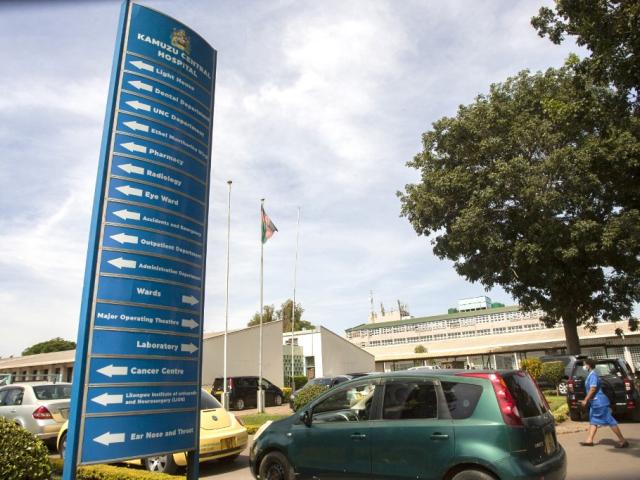
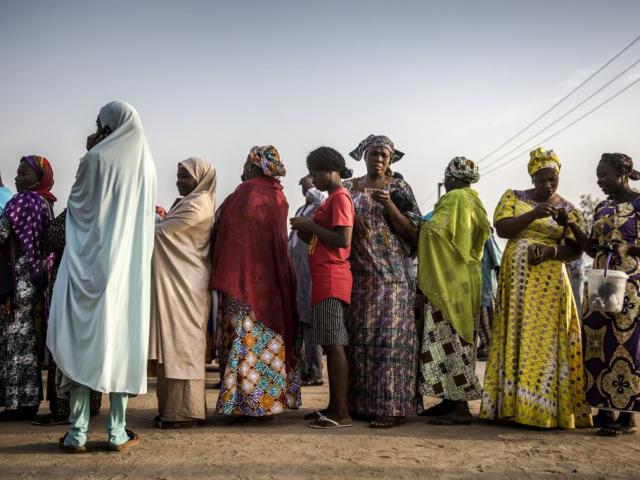
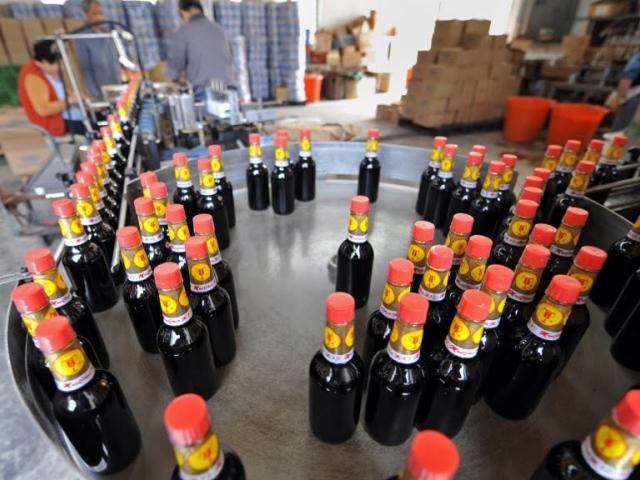
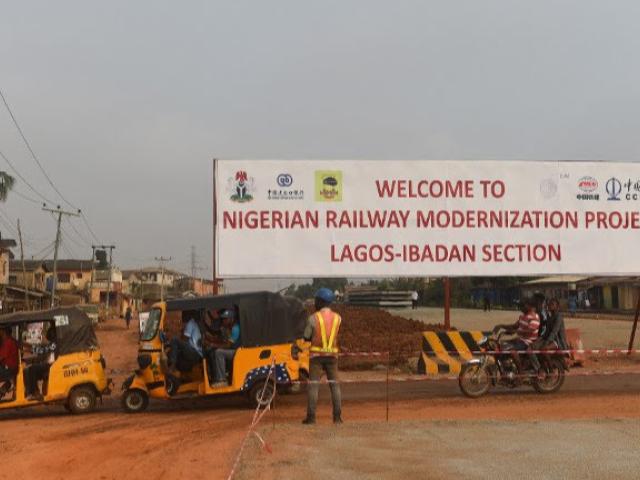
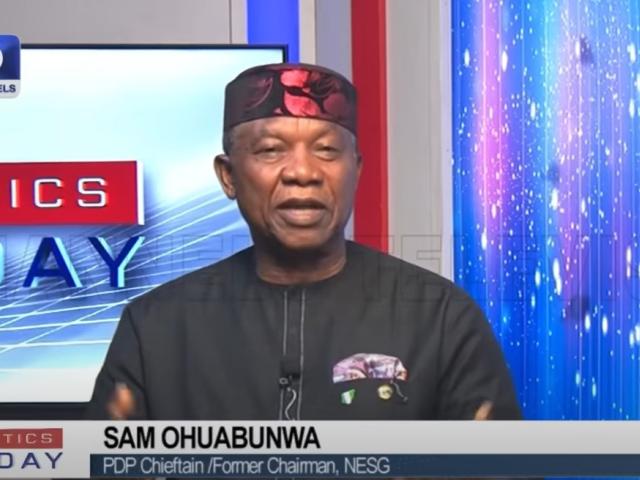
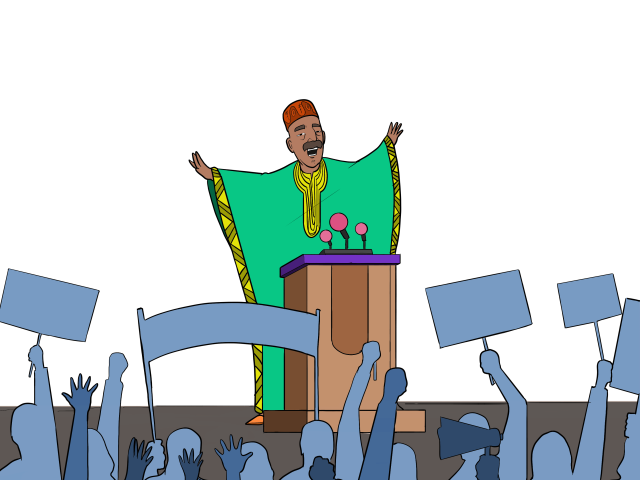
Add new comment